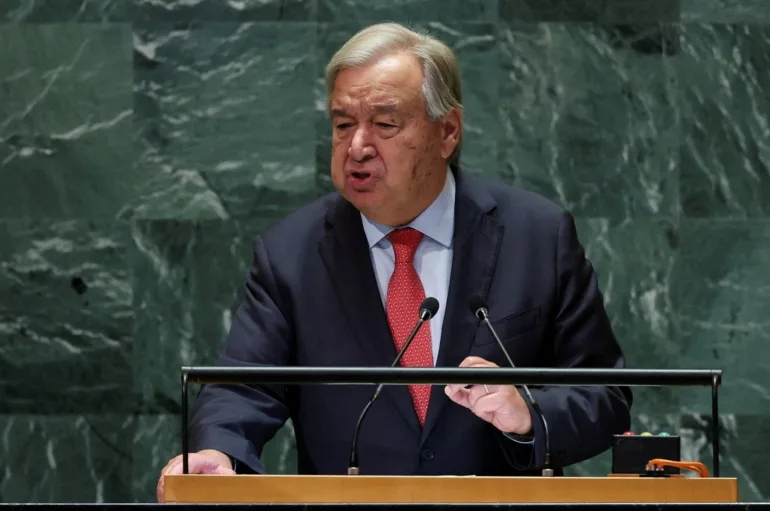The United Nations has warned that acute food insecurity is deepening in Nigeria and 15 other global hunger hotspots, putting millions of people at risk of famine between November 2025 and May 2026.
The warning came in a joint report by the Food and Agriculture Organization (FAO) and the World Food Programme (WFP) titled “Hunger Hotspots: FAO/WFP Early Warnings on Acute Food Insecurity.”
According to the report, Afghanistan, the Democratic Republic of the Congo (DRC), Myanmar, Nigeria, Somalia, and Syria are classified as areas of “very high concern.” Meanwhile, Haiti, Mali, Palestine, South Sudan, Sudan, and Yemen face an imminent risk of catastrophic hunger, rated at the highest level of the international food security scale (IPC/CH Phase 5).
Four additional contexts — Burkina Faso, Chad, Kenya, and the Rohingya refugee camps in Bangladesh — were also identified as high-risk areas requiring urgent international attention.
The UN agencies said conflict, economic shocks, and extreme weather continue to drive hunger across these regions, while shrinking humanitarian funding is compounding the crisis.
As of October 2025, only $10.5 billion of the $29 billion required for emergency food assistance had been received — a shortfall that has forced deep ration cuts and the suspension of key nutrition and school feeding programmes.
The FAO warned that without immediate funding, essential agricultural interventions such as seed distribution, livestock care, and early farming support will not reach communities before the next planting season.
“We must move from reacting to crises to preventing them,” said FAO Director-General QU Dongyu. “Investing in livelihoods, resilience, and social protection before hunger peaks will save lives and resources. Famine prevention is not just a moral duty — it is a smart investment in peace and stability.”
WFP Executive Director Cindy McCain echoed the call for urgent global action, warning that millions face starvation if the world fails to respond.
“Mothers are skipping meals so their children can eat. Families are exhausting what little they have left,” McCain said. “We urgently need new funding and unimpeded access. Failure to act now will fuel instability, migration, and conflict.”
Both agencies called for renewed global attention, sustained investment in resilience, and unrestricted humanitarian access to conflict-affected regions, stressing that famine is “predictable and preventable” with adequate political will and resources.
The biannual Hunger Hotspots report, developed under the Global Network Against Food Crises with support from the European Union, serves as an early warning tool to guide coordinated global responses to emerging food emergencies.


